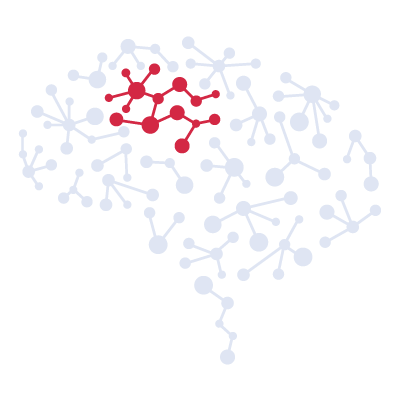
Female Postdoc Award 2020
Within the gender equality program of the DFG Research Unit 2879 Immunostroke, we offered the opportunity to apply for a Postdoctoral award.
The Postdoctoral awards were given to female applicants to perform an independent project focused on stroke-immunology in the host laboratory.
After evaluating all five applications received, we decided that each individual application is worth being supported.
Dr. Corinne Benakis
The gut microbiome as an immune modulator in brain disease:
The road to microbiome-based therapies for stroke patients
Dr. Antje Schmidt-Pogoda
T cell-mediated exercise effects on neuronal network reorganization assessed by diffusion tensor imaging (DTI) and axonal tracing
Dr. Ayan Mohamud Yusuf
Application of artificial intelligence (AI) for the analysis of light sheet fluorescence microscopy (LSFM) data
Dr. Karoline Degenhardt
Investigation of the neuroprotective effects of microglial immune tolerance on post-stroke inflammation
Dr. Carolina Pinto Espinoza
Generation of α-N-ter GSDMD nanobodies as new therapeutic tools for the acute and recovery
phase of stroke

Corinne Benakis, PhD
Institute for Stroke and Dementia Research (ISD), Munich
Title: The gut microbiome as an immune modulator in brain disease:
The road to microbiome-based therapies for stroke patients
I am interested in how the gut microbiome can be modulated to ameliorate the outcome of stroke. Using animal models, I have demonstrated that the gut microbiome influences stroke pathobiology by modulating the intestinal immune response. However, it is still not known whether in stroke patients the microbiome regulates key features of the immune response and whether it has an impact on stroke outcome.
Within the scope of the ImmunoStroke Consortium, I will test a novel approach using the transplantation of faecal microbiota from stroke patients in “humanized mice” – an animal model recapitulating the human immune system. This original research concept has strong translational potential and will bring new highlights on how the immune system is modulated by the gut microbiome in stroke patients. In particular, I speculate that reshaping the microbiome-host immune interactions via probiotics and postbiotics will bring new therapeutic avenue for both stroke recovery and prevention.
Dr. med. Antje Schmidt-Pogoda
Title: T cell-mediated exercise effects on neuronal network reorganization assessed by diffusion tensor imaging (DTI) and axonal tracing
We aim to analyze exercise-mediated effects of immune cells on neuronal reorganization following stroke by magnetic resonance imaging (MRI) diffusion tensor imaging (DTI) and by analysis of axonal plasticity after stereotactic injection of axonal tracers cascade blue (CB) and biotinylated dextran amine (BDA). To this end, MRI measurements and immunohistochemical stainings will be performed in wild type mice with and without exercise, and in RAG1-/- mice with and without adoptive CD3+-T cell transfer. In addition, patterns of immune cell infiltration shall be correlated with neuronal network reorganization.
Ayan Mohamud Yusuf, PhD
Title: Application of artificial intelligence (AI) for the analysis of light sheet fluorescence microscopy (LSFM) data
High resolution light sheet fluorescence microscopy (LSFM) is a planar illumination technique that is utilized for imaging of entire organs. After administration of a fluorescent vascular tracer (e.g. FITC-albumin), followed by brain dehydration and optical clearing with a refractive index-matching organic solvent (e.g. dibenzyl ether or ethyl cinnamate), LSFM can be applied to visualize the entire brain vasculature and quantify microvascular characteristics at a capillary resolution. In-depth analysis of the extremely large data sets (> 100 GB) that are obtained, remains very labour-intensive and was therefore hitherto confined to the analysis of selected regions. The aim of this project is to implement artificial intelligence (AI) for quantification of LSFM data obtained from the whole brain to accelerate the speed of analysis without compromising reliability and accuracy, which will fundamentally advance our studies, in which we investigate immune responses controlling post-stroke angiogenesis and microvascular integrity.
Karoline Degenhardt, PhD
Title: Investigation of the neuroprotective effects of microglial immune tolerance on post-stroke inflammation
The goal of this project is to examine how microglial immune tolerance affects the microglia-neuron crosstalk in post-stroke inflammation.
We will apply the concept of innate immune memory to induce immune-tolerant microglia in mice. Following stroke, the analysis of the inflammatory response and neurological outcome will allow us to evaluate effects of immune-tolerant microglia. To further specify the direct influence of microglial immune tolerance we will then use cell and nuclei isolation methodologies to purify the microglial and neuronal transcriptome. This enables us to identify a neuronal and microglial transcriptomic signature as wells as biological interaction pathways which particularly mediate regenerative processes in neurons.
Carolina Pinto Espinoza, PhD
Title: Generation of α-N-ter GSDMD nanobodies as new therapeutic tools for the acute and recovery phase of stroke
It is well described that during the acute phase of stroke there is a pathogenic inflammatory response mediated by the IL1-β signalling, whereas during the recovery phase, a controlled inflammatory response promote neurological recovery and tissue preservation.
Gasdermin D (GSDMD) was found to be upregulated during the acute phase. GSDMD is a dimeric pore-forming protein composed of a cytotoxic N-terminal (N-ter) domain and a repressor C-terminal domain. The cleaved N-ter domain oligomerizes forming a pore in the plasma membrane through which IL-1β is released. A sustained inflammatory response triggers pyroptosis that is executed by GSDMD pores. If the inflammatory response is low, GSDMD pores are repaired allowing only the release of IL-1β in the absence of lysis. Therefore, N-ter GSDMD appears to be an excellent target for stroke.
Because of their advantageous features, here we propose nanobodies (Nbs) as innovative therapeutic tools targeting N-ter GSDMD. Nbs are the single variable domain of camelid heavy chain antibodies (HcAbs). With a small size of 15 KDa, Nbs can readily penetrate tissues. As single modules, Nbs display high solubility thereby facilitating reformatting into multivalent molecules. To facilitate Nb discovery, our group has generated lama IgH transgenic mice (WO/2018/104528) that exclusively produce HcAbs. After immunization, GSDMD specific Nbs will be selected by phage display and their binding and functional properties will be characterized.
Female Postdoc Award
Förderung junger Schlaganfallforscherinnen
Die DFG-geförderte Forschergruppe „ImmunoStroke: Von der Immunzelle zur Schlaganfallregeneration” fördert fünf herausragende Nachwuchswissenschaftlerinnen.
Schlaganfälle sind die Hauptursache langfristiger gesundheitlicher Beeinträchtigungen und die dritthäufigste Todesursache in Industrieländern. In Deutschland sind jährlich 250.000 Menschen betroffen. Bisher gibt es kaum Erkenntnisse darüber, welche Rolle Immunzellen bei Reparaturmechanismen und der langfristigen Genesung nach einem Schlaganfall spielen. Hier setzt die Arbeit der durch die Deutsche Forschungsgemeinschaft (DFG) geförderte Forschergruppe „ImmunoStroke: Von der Immunzelle zur Schlaganfallregeneration“ an.
Um herausragenden weiblichen wissenschaftlichen Nachwuchs besonders zu fördern, wurde jetzt der Female Postdoc Award ins Leben gerufen. Hier werden Wissenschaftlerinnen unterstützt, deren Arbeit sich mit alternativen und neuen Therapien für Schlaganfallpatientinnen und -patienten befasst. Dies ermöglicht ihnen, ihre Projekte unabhängig durchzuführen.
Die Bewerbungen waren so herausragend, dass statt vier insgesamt fünf Wissenschaftlerinnen gefördert werden. Die Gelder in Höhe von je 17.500 Euro bzw. je 8.750 Euro für die Projekte aus Hamburg fließen direkt in die wissenschaftliche Arbeit der Forscherinnen. Eine der Preisträgerinnen erhält darüber hinaus die Möglichkeit, einen Antrag als unabhängige Projektleiterin für die zweite Förderperiode der Forschergruppe zu stellen.
Eine Auszeichnung geht auch nach Essen: Ayan Mohamud Yusuf (Klinik für Neurologie, Universitätsklinikum Essen) untersucht in ihrem Projekt mittels hochauflösender dreidimensionaler Lichtblattmikroskopie den Einfluss bestimmter Immunzellen, der sog. T-Zellen und Mikroglia, auf das zerebrale Gefäßsystem nach einem Schlaganfall. Das Projekt wird unter der Leitung von Prof. Dr. Dirk Hermann (Klinik für Neurologie, Universitätsklinikum Essen), Prof. Dr. Matthias Gunzer (Institut für Experimentelle Immunologie und Bildgebung, Universitätsklinikum Essen) und Dr. Peter Ludewig (Klinik für Neurologie, Universitätsklinikum Hamburg-Eppendorf) durchgeführt.
Weiterhin ausgezeichnet wurden PhD Corinne Benakis, University Medical Center Munich, Dr. Karoline Degenhardt, UKE Hamburg, Dr. Carolina Pinto Espinoza, ebenfalls vom UKE Hamburg, sowie Dr. med. Antje Schmidt-Pogoda, Universitätsklinikum Münster.





